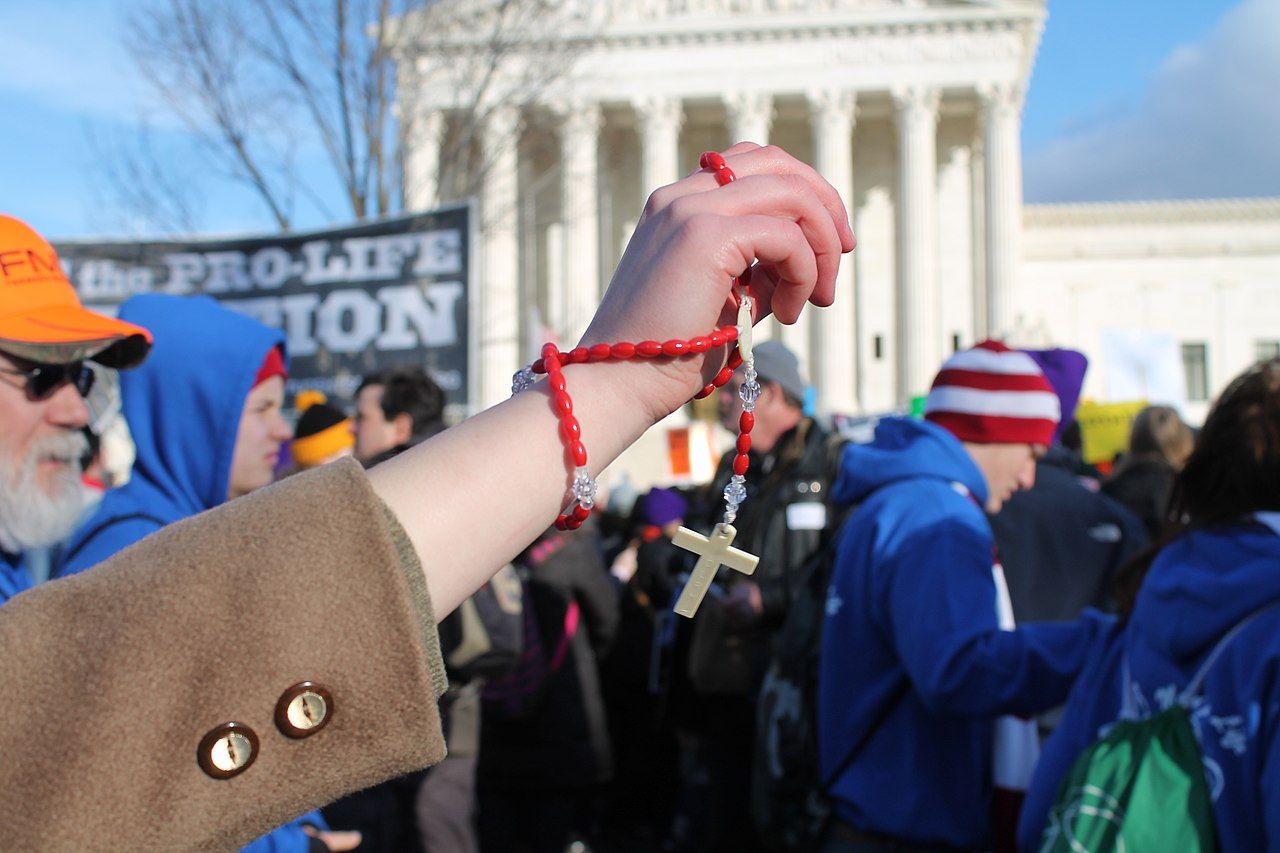How SCOTUS is Creating a Parallel Legal Institution
T
he end of this year’s Supreme Court term has clarified what looks to be its doctrine for the near future. On the one hand, the Court finds itself applying Obergefell’s implications to a variety of discrimination disputes, enshrining explicit legal protections for sexual orientation and, now, gender identity. Accompanied by an uneasy intra-Court paralysis over what to do with abortion, the Court’s jurisprudence will play out Obergefell’s logic over the reliable and futile protests of a three- or four-justice conservative minority. Meanwhile, it seems the Court will carve out maximal religious exemptions from the new legal regime. Building on Masterpiece Cakeshop, the Court will use a combination of free exercise and protection from compelled speech essentially to exempt religious organizations from participating in the post-Obergefell regime as much as possible. Using this logic, it seems that the likeliest outcome of the dispute over the ACA’s contraceptive mandate is that the Court will maintain the legality of the mandate while carving out an exemption for religious employers.
If there is a reason for this, it is probably because the Court thinks it can cobble together a stable equilibrium, at least in the short- to medium-run. Chief Justice Roberts especially sees making overtures to the Left against his inclinations as a tactic to prevent further popular delegitimization of the Court and to ward off the threat of court-packing in the increasingly likely event of a Biden victory and a Democratic-controlled Senate. Meanwhile, he can shore up religious exemptions without too much encroachment on the Obergefell regime. In doing so, he thinks he has adequately balanced the incompatible rights-claims made by the competing two parties, which can pursue détente by keeping to their own spheres.
I doubt whether the equilibrium the Court supposes it has struck will be stable, mostly because people aren’t very good at leaving each other alone. But, as this jurisprudential framework is further entrenched, it will serve another purpose: to heighten the contradictions between the Obergefell regime—that is, American law—and the religious groups seeking exemption from it. For the latter, their impression that the laws are not really theirs will strengthen; after all, the Court has basically conceded that there is no way it can harmonize the two regimes in some higher-level neutrality. It could, in other words, erode religious identification with the American legal order. And the former camp are contemptuous of religious Americans (i.e., religious Americans of a socially conservative bent) for opting out of a civil rights issue.
To heighten (or accelerate) a contradiction is a Marxist concept: the exploitation under capitalism would become so great that the entire system would undermine itself and its reality would be incompatible with its professed benefits. Thereafter, the working classes would revolt. This can also be used in legal or cultural contexts, when there is no longer a cultural correspondence between laws and people. That’s not exactly what is happening here, because the people are themselves roughly divided between two camps. But recent jurisprudence is codifying the values of one camp, while giving the other a wide swathe to operate outside of that legal code. Of course, individuals as proprietors of businesses may not exempt themselves from antidiscrimination law in hiring employees or serving customers except in the narrow band of cases that deal with compelled speech. But religious institutions as religious institutions are basically self-governing in this regard. They are permitted to take actions that would expose other employers to state sanctions. There is clearly a contradiction here.
The Court has thus made religious institutions extra-legal, signaling to them that there is no hope of legal reconciliation with the new regime of laws and that they are, in a way, legal outcasts. Clearly, the Establishment Clause has always made this officially the case, but there has long been a much closer correspondence between the public legal regime and religious values than is currently displayed. Now that the former is sprinting away from the latter, it seems natural that the Court would seek to carve out a new type of exempt class. This is neither to cry “persecution!” nor to argue that a Court attempting to weigh conflicting rights-claims could have done much more in that regard. It is simply to note that the Supreme Court’s jurisprudence is further sundering religious America from the rest, most of all in the perceptions of the two camps. I do not think this is desirable, nor do I find it sustainable over the long-run, but it is, I think, undeniable as a description of our present state.
William Lombardo is the Politics editor. He is a policy researcher living in Washington, DC and a graduate of Duke University. He invites you to follow him on Twitter.
